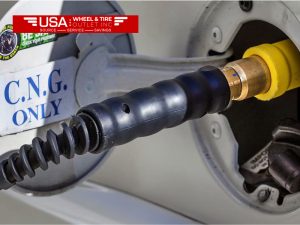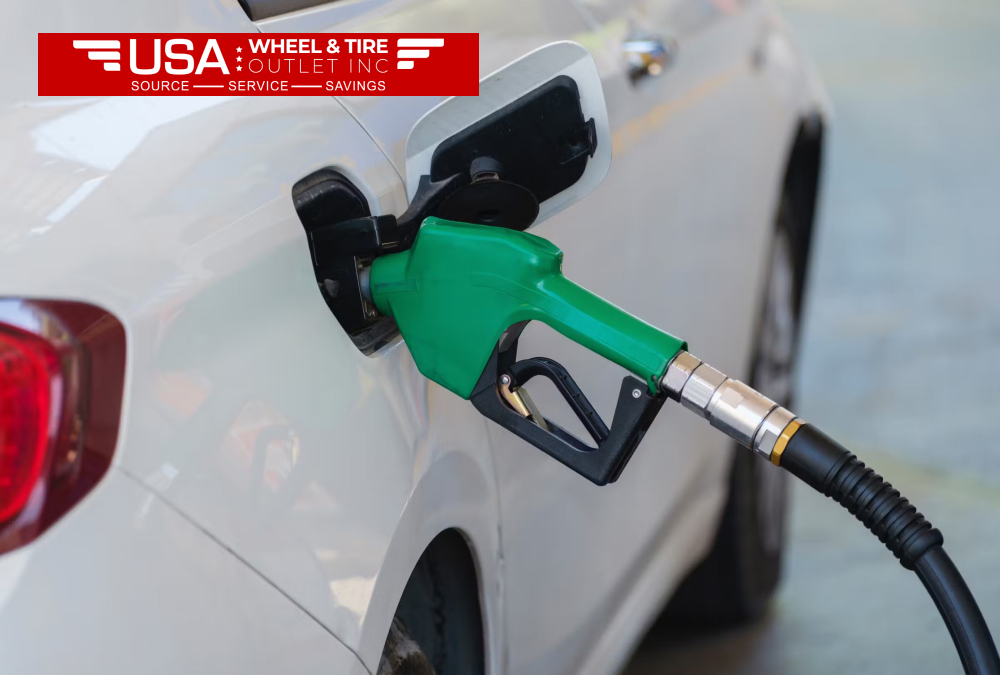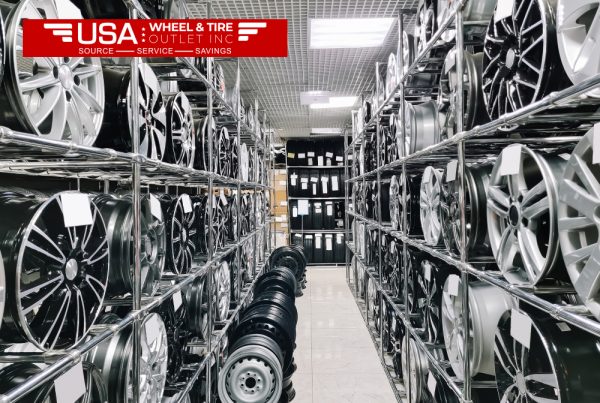Fuel is the fuel that powers every car. It doesn’t matter if it’s diesel, gasoline or a different fuel the choice you make can affect the performance of your car, efficiency as well as the environment. As the world shifts towards more sustainable choices, knowing the different types of car fuel and their effectiveness is vital for both the consumer and companies. This guide will assist you in navigating the vast world of fuel types through looking at their pros and cons and their impact on the performance of your car.
What Are Fuel Types?
The types of car fuel are the kinds of energy sources that are used in automobiles. At first it was an easy option to choose between diesel and gasoline. As time passed, technological advancement led to the development of alternative fuels, as well as electric vehicles.
Gasoline
The most used fuel for cars is gasoline. The gasoline is produced of crude oils. The engines that run on gasoline are known for their seamless running, easy use, and minimal maintenance.
Advantages:
Disadvantages
Diesel
The fuel can also be refined by blending crude oils, but has greater volume than gasoline. Diesel engines are typically located in heavy-duty vehicles or buses. They also come in SUVs.
Advantages
Disadvantages
Alternative Fuels
As environmental concerns increase the majority of people are searching for alternatives to sources of energy. This includes biofuels, hydrogen or compressed natural gas (CNG). Let’s take a look at a few of these alternatives.

Biofuels
Biofuels are produced by organic substances such as algae, plants or even waste. Ethanol and biodiesel are among the most commonly used biofuels. Ethanol is usually blended with gasoline to decrease the carbon footprint.
Advantages:
Disadvantages:
Hydrogen
Hydrogen fuel cells generate electricity for cars. When it mixes with oxygen, hydrogen produces only water from its final products.
Advantages:
Disadvantages
CNG-Compressed Natural Gas
CNG is a cleaner and more efficient alternative to diesel and gasoline. CNG is mostly utilized in commercial vehicles such as trucks and buses however, it is now being used in passenger vehicles.

Advantages:
Disadvantages:
Electric Vehicles (EVs)
Electric cars are powered completely with electricity stored in batteries. Because they emit no emissions there are many who see EVs as the future of transportation.
Advantages:
Disadvantages
Gasoline vs Diesel: A Comparison
A frequently asked queries asked by car buyers is which engine to select between diesel or gasoline engine. Both come with their benefits, however there are distinct differences in fuel efficiency performance, performance, as well as environmental impact.
Fuel Efficiency
Generally speaking, diesel engines consume more fuel compared to a gasoline engine. They manage to get more energy out of the same amount of fuel. In this respect, vehicles using diesel will have to go further with less refill of the tank.
Performance
Diesel engines offer higher torque, thus making them ideal for heavy-duty usage like trucks and SUVs. In addition, it has a better performance during long drives and highways since it consumes lesser fuel.
Cost of Ownership
While diesel fuel is often more expensive than gasoline, better fuel economy in diesel vehicles may offset the higher fuel costs over time. Also, diesel vehicles are longer-lasting, with engines lasting longer than gasoline engines in many cases.
However, diesel vehicles are more expensive to purchase initially, and the maintenance cost is higher. Diesel engines require oil changes more frequently and might incur additional costs for the more complex components they contain.
Environmental Impact
Gasoline engines are less pollutive than diesel engines. For instance, diesel engines produce more nitrogen oxides and particulate matter, factors that contribute to air quality degradation. However, advances in technology and the resultant stricter emissions standards have made it possible for diesel engines to be cleaner.
Noise and Vibration
Diesel engines are generally noisier and produce more vibration than gasoline engines. This can make for a less smooth and quieter ride, especially in smaller vehicles.
Electric Vehicle Options: The Future of Transportation
Electric vehicles are gaining popularity rapidly due to their environmentally friendly nature. EVs are powered by batteries and have zero tailpipe emissions, making them a great option for reducing environmental impact. Here are some options to consider:
Full Electric Vehicles (BEVs)
Battery Electric Vehicles (BEVs) -These are full electric vehicles, running on a single pack of a battery to be charged using an electricity outlet. These vehicles leave behind no emissions and assure one with good energy efficiency
Best Selling Models: Nissan Leaf, Chevy Bolt and Tesla Model 3
Plug-In Hybrid Electric Vehicles (PHEVs)
PHEVs combine an internal combustion engine (either gasoline or diesel) with an electric motor. They offer flexibility by allowing the vehicle to run on electricity for short distances and gasoline or diesel for longer trips.
Popular Models: Toyota Prius Prime, Ford Escape PHEV
Hydrogen-Powered Vehicles
Hydrogen-powered vehicles use fuel cells to convert hydrogen into electricity to power the vehicle. These vehicles emit only water vapor, making them a zero-emissions option.
Popular Models: Toyota Mirai, Hyundai Nexo
Factors Influencing Fuel Efficiency
Fuel efficiency is a gauge of how efficiently a given vehicle converts fuel into kinetic energy for motion. Numerous factors affect the efficiency at which a vehicle uses the fuel, including engine type and vehicle maintenance.
Engine
Diesel engines are said to be more fuel-economical than gasoline engines because of greater energy density. Modern fuels in gasoline engines have undergone changes, and most compare favorably with diesel at present.
Driving Habits
Driving behaviors are factors that affect the fuel efficiency. Aggressive driving, for instance rapid acceleration and braking, is a waste of fuel. Smooth driving with steady speed and less idle time improve fuel efficiency.
Vehicle Maintenance
Proper vehicle maintenance in terms of regular oil change, tire inflation, and air filter replacement enhances fuel efficiency. Vehicles that are well maintained will most likely run at optimal efficiency.
Aerodynamics and Weight
The design of the vehicle also makes it efficient. Aerodynamic ones experience less air resistance thus making them more fuel effective. The lighter vehicles experience less energy to move which makes them more efficient too.
The Environmental Impact of Fuel Types
The type of fuel used affects the environment. Fossil fuels such as gasoline and diesel emit greenhouse gases and pollute the air. Combustion of these fuels produces carbon dioxide, a key driver of climate change. Alternative fuels, such as biofuels, hydrogen, and electricity from renewable sources, have much lower emissions.
Electric vehicles, for instance, are a game-changer in terms of pollution reduction. When powered by renewable energy sources such as wind and solar, EVs can operate with virtually no emissions.
The Future of Fuel: Emerging Trends
As the issues of climate change and environmental impact become more pressing, the future of vehicle fuels is changing. Automakers, governments, and consumers are increasingly looking toward alternative fuels and more sustainable vehicle technologies. Here are a few trends shaping the future of transportation.
Growth of Electric Vehicles (EVs)
The adoption of electric vehicles continues to rise as battery technology improves, reducing costs and extending driving ranges. EVs are now available in various models, from compact cars to trucks and SUVs. With expanding charging infrastructure and incentives from governments, the shift to electric vehicles is gaining momentum. EVs are expected to become even more affordable as production increases, making them a viable choice for more consumers.
Hydrogen Fuel Cells: The Clean Energy
Hydrogen is another promising alternative fuel. Hydrogen cars work off hydrogen, which mixes with oxygen in a fuel cell to generate electricity and thus produces only water as byproduct. Though this technology still costs much more than ordinary vehicles, the benefits go beyond being a clean source of renewable energy. Coming decades may well witness growth in hydrogen fuel cell generation and refueling stations to facilitate hydrogen cars more generally.
Biofuels and Sustainability
Biofuels: derived from organic materials in the form of plants, algae, and others-solution for gasoline and diesel alternatives. Ethanol is often used mixed with gasoline; the former can be applied either in direct substitution for or blended with diesel and replaces fossil fuel-based raw material for fuel production at its origin. These biofuels reduce carbon emissions in support of sustainable farming techniques and reliance on fossil fuels
Hybrid Technology
Hybrid vehicles, the other fast-growing segment, will combine an internal combustion engine with an electric motor to provide better car fuel efficiency for both engine and motor application based on driving conditions. Hybrids are also best suited for consumers who want benefits of an EV without requiring complete dependence on charging stations.
Conclusion
Choosing the right fuel type for your vehicle is one of the most important decisions that will affect everything from fuel efficiency to environmental impact. Gasoline, diesel, and alternative fuels all have their pros and cons.
However, as the world shifts toward cleaner energy, electric vehicles and hydrogen-powered cars offer a glimpse into a more sustainable future. Consider your driving needs, budget, and environmental concerns when choosing the best fuel option for your vehicle.
Read Also: Wheels On Site: A Guide to Finding and Fitting Wheels Online
Frequently Asked Questions (FAQs) on vehicle types and their efficiency:
1. What are the various types of car fuel available for vehicles?
Some of the most common fuels include gasoline, diesel, electricity (for electric cars), compressed natural gas (CNG), hydrogen, and biofuels. Each of them has a distinct set of characteristics, benefits, and drawbacks based on the use of the vehicle and the impact on the environment.
2. Which of these is the most fuel-efficient?
Diesel engines are generally more fuel-efficient than gasoline engines due to the fact that diesel fuel contains more energy per gallon. Diesel engines allow a vehicle to travel more miles on a single tank of fuel, making it suitable for trucks, long-distance travel, and heavy-duty vehicles.
3. What is the difference between gasoline and diesel fuel?
Gasoline is a lighter fuel applied on most passenger cars that shows smoother performance and lower emissions. Diesel is one more energy-efficient fuel. Due to its denseness, it is applied mainly to larger vehicles, for producing more torque but it contributes highly to emissions such as NOx and particulate matter.
4. Are electric cars really environmentally friendly?
Yes, EVs are way better for the environment as compared to gasoline and diesel-run vehicles. EVs produce zero tailpipe emissions, thereby reducing air pollution. They can even go carbon-neutral if powered using renewable sources.
5. What are alternative fuels and how are they beneficial for the environment?
Alternative fuels include biofuels, hydrogen, and CNG. These are cleaner fuels compared to the fossil fuel of gasoline and diesel. They help reduce green-house gas emissions, offer more energy sustainability, and less dependence on fossil fuels.
6. How do hybrid vehicles work?
Hybrid vehicles combine an internal combustion engine (be it gasoline or diesel) with an electric motor. They switch between the engine and the electric motor dependent on the driving conditions offering improved fuel efficiency and emissions compared to traditional gasoline or diesel vehicles.
7. How does behavior while driving affect car fuel economy?
Driving habits greatly affect fuel efficiency. Aggressive driving wastes the most car fuel since it leads to rapid acceleration, hard braking, and speeding. Smooth driving maintains steady speeds while minimizing idling to obtain maximum fuel efficiency and ultimately reduce fuel consumption.
8. Do hydrogen fuel cars have any chance of entering the mass market?
Hydrogen fuel vehicles hold a promise for zero-emission power, but their wide adoption is hindered by their high cost, lack of refueling infrastructure, and energy-intensive processes for the production of hydrogen. With further advancements in technology and greater investments in hydrogen infrastructure, these vehicles may become more accessible in the future.





